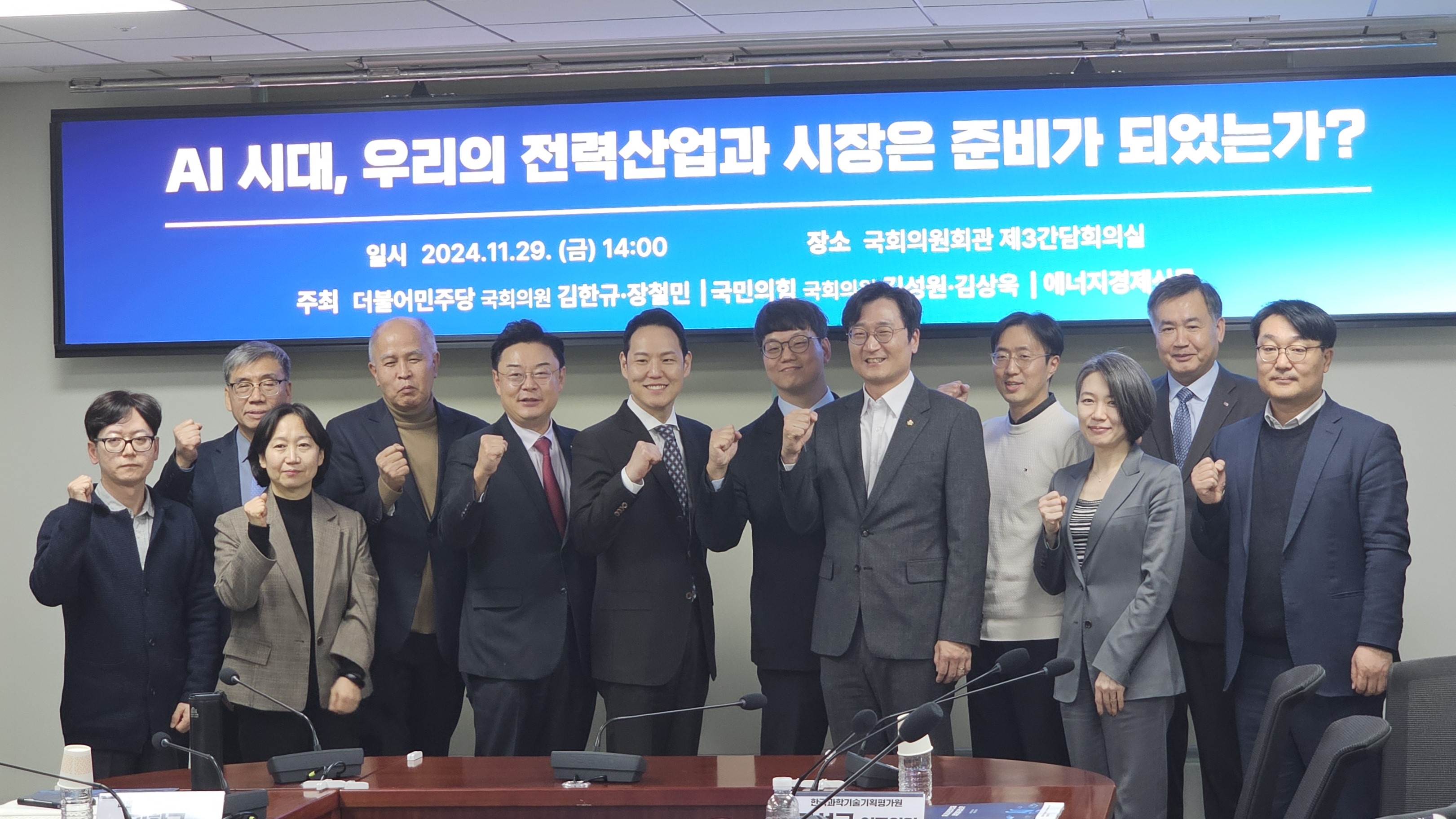“에너지 전환은 인공지능이 혁신 산업으로 나아가기 위한 체질전환 기회로 삼을 필요가 있다”
김선교 한국과학기술기획평가원(KISTEP) 연구위원은 최근 국회 토론회에서 AI 시대 전력산업과 시장 준비를 주제로 주제발표를 진행하며 이 같이 말했다.

▲AI 시대 전력산업 주제 국회토론회 현장
첨단 산업 혁신, 전력 인프라부터 시작
“클린 에너지 생산, 기술적 포용 바람”
“에너지 전환은 인공지능이 혁신 산업으로 나아가기 위한 체질전환 기회로 삼을 필요가 있다”
김선교 한국과학기술기획평가원(KISTEP) 연구위원은 최근 국회 토론회에서 AI 시대 전력산업과 시장 준비를 주제로 주제발표를 진행하며 이 같이 말했다.
생성형 AI 기술의 확산으로 빅테크 기업들이 AI 데이터센터 확대를 선제적으로 몰아부치고 있는 가운데, 이를 수용하는 주변 인프라는 여전히 성장 속도가 더뎌 AI 병목 현상을 유발하고 있다. 특히 전력 산업의 대응이 늦어질수록 AI 산업 발전에 악영향을 끼친다는 우려에 전력업계가 미래 AI 시대 맞이에 박차를 가했다.
이에 국내에서도 전력망 확충에 대한 논의가 뜨겁다. 지난 29일 여의도 국회의원회관에서 열린 국회 토론회에서도 국내 탈탄소화 한계를 지적하며, 전력 인프라 혁신을 위한 디지털화 및 정책 추진 등을 호소했다.
김 연구위원은 “한국은 더럽고 저렴한 척 흉내내는 에너지 비용을 갖고 있다”면서 국내 친환경 에너지 생태계를 지적하며, 신규 SK하이닉스 용인 팹의 전력 및 탈탄소 인프라에 대해 필수적으로 논의할 필요가 있다고 피력했다.
GHG 프로토콜에 따라 스코프2를 달성해야 하는 반도체 업계는 에너지 사용에 따른 간접배출되는 온실가스를 절감해야 할 필요성이 있다. 이에 신규로 구축되는 용인 반도체 클러스터에 기반이 되는 전력 인프라를 친환경·그린 에너지로 공급할 때 글로벌 경쟁력이 갖춰질 수 있다.
이날 토론에 참석한 이보람 삼성전자 DS지속가능경영사무국 상무는 “국내 비탄소 에너지 조달 환경이 재생에너지를 포함해 수소 및 기타 에너지에서 비용과 물량이 경쟁국 대비 다소 열세”라면서, “클린 에너지 생산에 다양한 기술적 포용을 고려해주길 바란다”고 제언했다.
또한 AI를 기회로 에너지 전환 가속화와 전력산업의 도약을 주장하는 김 연구위원은 전력 시장에 데이터 개방으로 디지털화를 가속화할 필요가 있다고 주장했다.
한편, 엔비디아에 따르면 스마트 그리드 구축 전망으로 “전 세계 유틸리티 업체들이 AI를 사용해 대규모 발전소와 변전소, 그리고 이제 가정까지 광범위한 전력망 네트워크를 관리하는 스마트 계량기를 도입하고 있다”면서, “스마트 계량기는 소프트웨어, 센서, 가속 컴퓨팅을 결합해 신호를 보낼 수 있다”고 전했다.
